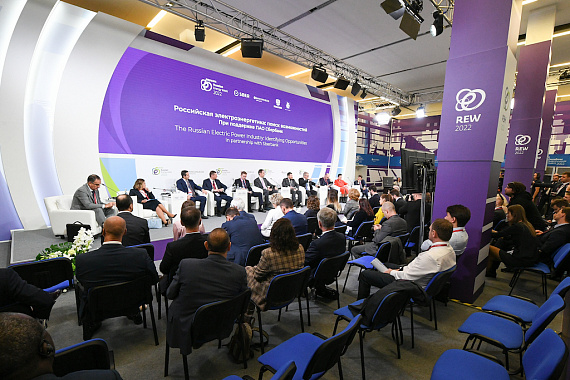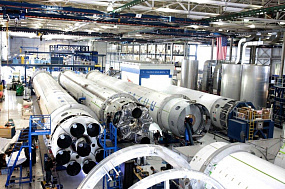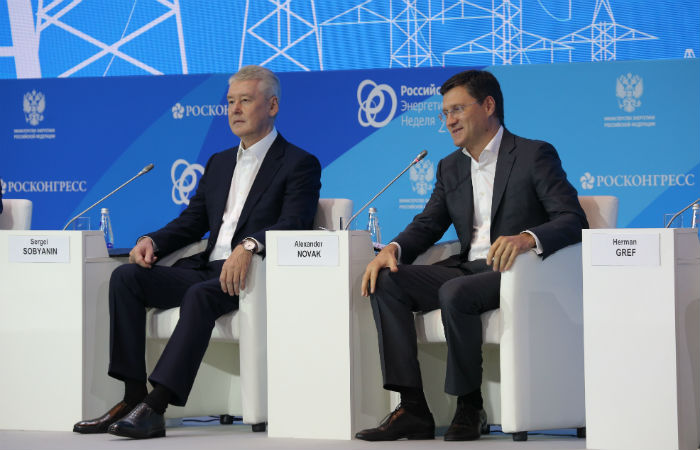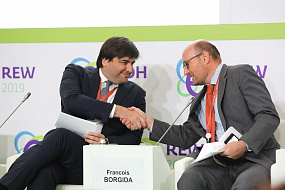The Russian Electric Power Industry: Identifying Opportunities

KEY CONCLUSIONS
Generation development should be based on price, environmental and technological factors
“I think the right concept is a rational balance of generation. <...> When we use the principles of minimizing the cost of electricity for consumers, price is only one factor. We are combining several factors. The second factor is the challenges facing Russia in terms of reducing CO2 emissions. <...> The third factor is ecology, obviously, we are not going anywhere, and we are not going to leave that behind. The fourth is the availability of technology, which is perhaps one of the most difficult issues when it comes to achieving self-sufficiency in terms of technology,” Pavel Snikkars, Deputy Minister of Energy of the Russian Federation.
“The ESG agenda has become central for us this year. The future of coal is all about meeting environmental requirements. <...> On the one hand, we know that coal has no competition, in heat supply in the first place. <...> But it needs to be cleaned up, which we are actively pursuing with programmes already approved,” Stephan Solzhenitsyn, Chief Executive Officer, SGK; Member of the Board of Directors, SUEK.
Capacity Delivery Contracts (CDCs) remain the most effective mechanism for energy development in Russia
“The first excellent investment cycle was the CDC-1 programme, the first CDC. <...> And we had about 50 GW of generation built under this CDC-1 cycle. 50 GW of generation is a lot. It is the installed capacity of the Polish power system. <...> The first cycle is over. We ended up with old equipment again, so we need to upgrade it. Together with the Market Council [the company that organizes wholesale and retail trade in electricity and capacity, – Ed.], we have been thinking for a long time about the ways of getting the investment cycle going again in order to make it work. We couldn’t find anything better than the CDC again,” Alexandra Panina, Chairman of the Supervisory Board, Council of Power Producers.
“We like CDC because the most important thing for the banks is that we have a stable guaranteed cash flow. <...> Any project that uses the CDC scheme gets approved without questions. Preparation for consideration and the consideration itself take as little time as possible,” Alexander Vedyakhin, First Deputy Chairman of the Executive Board, Sberbank.
PROBLEMS
The long investment cycle in the energy sector makes it impossible to attract bank loans
“Why do we estimate all projects through a payback period of five to a maximum of seven years? This is disproportionate. <...> We have a long life cycle,” Pavel Snikkars, Deputy Minister of Energy of the Russian Federation.
“The construction cycle [of a hydropower plant, – Ed.] is significantly longer than that of conventional thermal power, but so is the use cycle. Hydropower equipment runs absolutely smoothly for 20 to 40 years with very high efficiency and has a serious multiplier effect,” Mikhail Khardikov, Head of Energy Business, En+ Group; General Director, Eurosibenergo.
SOLUTIONS
Adjustment of banking and tax systems to the needs of energy producers
“I would still like to do some fine-tuning of the banking instruments, and if that requires a change in the regulator, we are ready, we are open to communication. Let’s try to do that. <...> There could be some fine-tuning of the tax system, and there could be preferences,” Pavel Snikkars, Deputy Minister of Energy of the Russian Federation.
“If the banks are willing to go for some sort of structuring of this cash flow, maybe the state can do the same for large, major projects,” Alexander Vedyakhin, First Deputy Chairman of the Executive Board, Sberbank.
Abolition of the preferential connection system
“The benefits that some consumers receive have to be paid for by others. So, our position is that everyone should pay the real price for the service they consume. <...> Everyone who wanted to take advantage [of benefits, – Ed.], did it and joined in. Next, everyone needs pay for themselves and for the power they need,” Alexey Molsky, Deputy Director General for Investment, Capital Construction, and Sales of Services, Rosseti.
“The initiative to abolish the benefits was not received with applause by consumers. The reasons are probably real: everyone expects it to cost a lot more and to have to pay extra for a normal technological connection to develop the network. <...> To benefit at someone else’s expense is a very short-term desire and will probably be a burden for the development of the whole economy in the long run,” Vladimir Tupikin, Energy and Resources Director, SIBUR.
For more information, visit the Roscongress Foundation’s Information and Analytical System roscongress.org and the official Forum website rusenergyweek.com.





